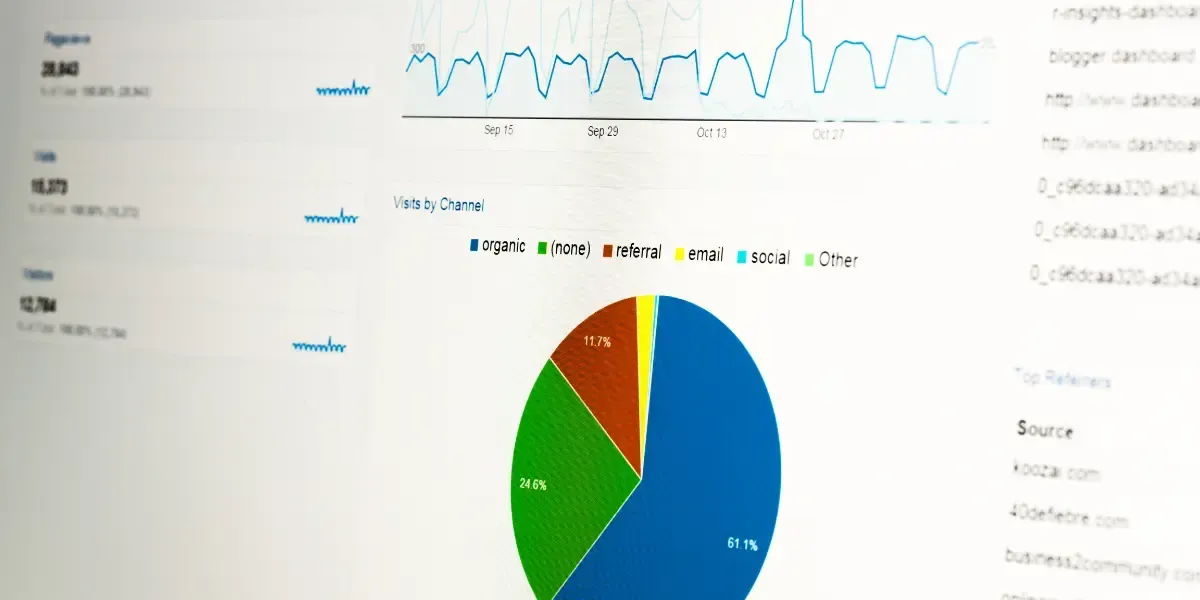How To Connect With Customers Using Local SEO

Does increasing the awareness of your business locally sound good to you? Well, by using Local SEO strategies, you can see significant growth in traffic to your website and brick-and-mortar store. In fact, did you know that 42% of local searches involve clicks on the Google Maps tab? With the rising dominance of online searches, leveraging SEO can have a tremendous impact on the visibility and reach of your business.
Contents
- Leveraging Google My Business (GMB) Optimization
- Building Local Citations
- Utilising Local Schema Markup for Enhanced Visibility
- Tailoring Local SEO Strategies for Different Business Types
Listen to this article
In this blog, we will delve into the world of SEO and explore various strategies and techniques that can put your business on the map, quite literally! From Google My Business optimisation to local citation building, we will uncover the secrets to enhancing your local online presence and effectively engaging with your target audience.
Whether you run a small local boutique, a cosy café, or a thriving service-based company, implementing these SEO tactics in Auckland can help you attract potential customers in your area, drive foot traffic to your physical store, generate online leads, and ultimately boost your sales. So, get ready to navigate the world of Local SEO and watch your business flourish in the local market!
Leveraging Google My Business (GMB) Optimisation
The first step in optimising your online presence for Local SEO is setting up your Google My Business profile. Whether regarding location, services, products, or even customer engagement, GMB is crucial in enhancing your local visibility. In fact, an astounding 56% of customer actions on Google My Business listings result in website visits, demonstrating its significance in driving online traffic. To make the most of this powerful tool, ensure that your GMB page is up-to-date and filled with relevant information. See our profile below as an example.
Accurate NAP (Name, Address, Phone) details and well-chosen business categories are essential for boosting your local rankings. Positive reviews from satisfied customers can work wonders for your credibility and search rankings, so don’t hesitate to encourage clients to leave their feedback. Additionally, staying active on your GMB profile by posting regular updates, captivating photos, and enticing offers will keep potential customers engaged and informed about your latest offerings. Embrace the potential of Google My Business optimisation and watch your local presence flourish like never before.
Building Local Citations
Business visibility on directories can be of great benefit to your online footprint. Yellow, for example, is a New Zealand-wide local citation that businesses can leverage to enhance their presence in local searches. Local business listings, also known as local citations, form a crucial part of Local SEO, influencing your business’s legitimacy and relevance in the eyes of search engines.
As with your Google My Business profile, ensuring consistent and accurate NAP details across various online directories, social media platforms, and review sites, you send strong signals to search engines about your business’s credibility. This, in turn, can positively impact your local rankings and help potential customers find your business quickly.
Embracing a well-thought-out local citation-building strategy and being diligent in maintaining NAP consistency can make a significant difference in your local online visibility and ultimately lead to increased customer engagement and growth for your business.
Utilising Local Schema Markup for Enhanced Visibility
Improving the Google algorithms’ ability to identify your presence as a local business is one way to enhance your Local SEO efforts. This is done through Local Schema Markup, which is a way of adding code to your website’s HTML. Local schema markup is a powerful tool that helps search engines understand the context of your business information. By incorporating structured data markup, you provide explicit signals about your location, operating hours, customer reviews, and other essential details.
The result? Your listing can stand out with rich snippets in search results, offering potential customers valuable information at a glance. With local schema markup in place, you increase your chances of appearing in featured snippets and other special search result features, ultimately boosting your business’s visibility and attracting more local customers.
Tailoring Local SEO Strategies for Different Business Types
Not all Local SEO strategies will be suitable for your business. For example, retail stores will benefit from an entirely different approach compared to service-based businesses. Tailoring Local SEO strategies based on the type of business is essential to achieve optimal results and connecting with the right audience.
Focusing on hyper-local keywords and community engagement can be highly beneficial for small businesses. By incorporating location-specific phrases and actively participating in local events and discussions, small businesses can establish a strong presence within their immediate vicinity. On the other hand, e-commerce websites should optimise product pages with relevant geo-targeted keywords to capture local searches. Implementing location-based meta tags and schema markup for local business information can significantly enhance their visibility in search results.
Restaurants and cafes can take advantage of customer reviews and regularly update menus and special offers on their Google My Business (GMB) pages. Positive reviews and dynamic content help build trust with potential customers and encourage more foot traffic. Brick-and-mortar stores can enhance their local presence through event promotions, localised content, and interactive store locator maps.
By creating buzz around local events and offering unique in-store experiences, they can attract a loyal customer base. Meanwhile, service-based businesses can target specific service areas and create localised content to attract potential clients. Utilising location-based landing pages and emphasising their expertise serving the local community can help them stand out from competitors.
Conclusion
Start with a Local SEO strategy today to help your business to thrive within your community. By leveraging tactics such as Google My Business optimization, building local citations, utilizing local schema markup, and tailoring strategies to different business types, you can significantly enhance your local online presence. These strategies will attract potential customers, drive foot traffic to your physical store, generate online leads, and ultimately boost sales.
FAQ
What role does Google My Business (GMB) play in Local SEO?
Google My Business (GMB) plays a crucial role in Local SEO as it allows businesses to create and manage their online presence on Google, enabling them to display important information such as their services, store location, hours, reviews, and contact details to potential customers searching for local businesses on Google Search and Maps.
How can Local SEO help increase foot traffic to my store?
Local SEO can help increase foot traffic to your store by optimizing your online presence for local searches, ensuring your store’s information appears accurately in search results, and targeting potential customers in your vicinity.
Digital Blog












